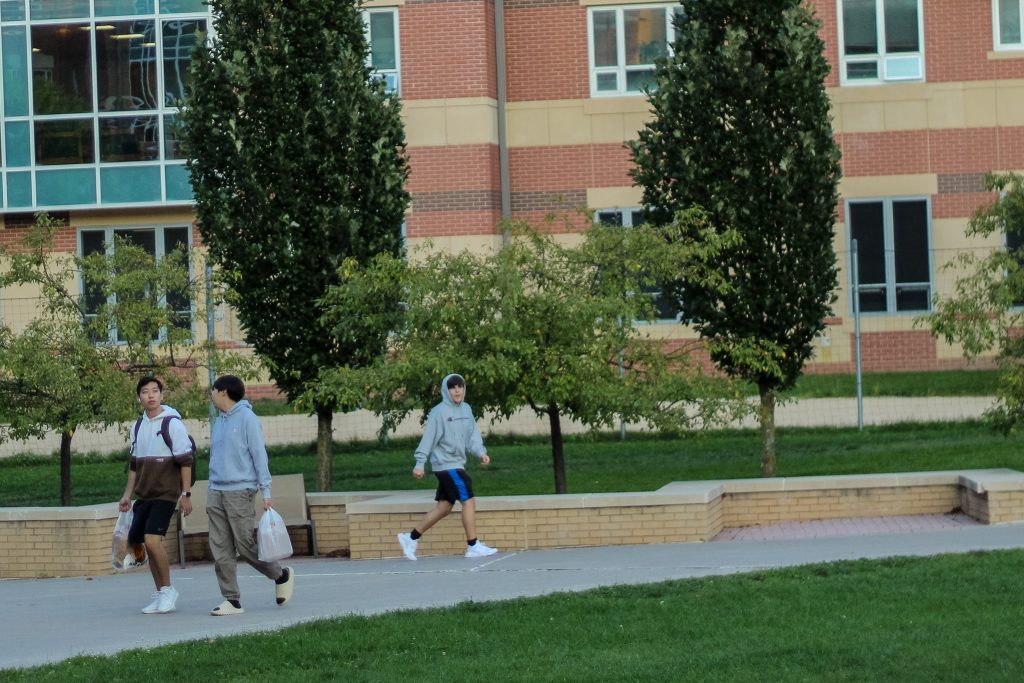An anonymous group of Binghamton University residential assistants (RAs) have released a response to Residential Life’s announcement to restructure the RA position next year.
The staffing announcement, originally sent out on Sept. 15, was a result of the increasing demands of University employees — especially RAs — as well as evolving student needs, according to Residential Life. The new model looks to create more than 300 new paid-staff positions in place of the current RA job. New residential positions include student support, apartment and community assistants and several hourly positions. The announcement has seen pushback from some RAs, however, who have expressed concern regarding the new compensation model.
Ryan Yarosh, senior director of media and public relations at BU, said the goal of the new structure is to improve the working environment for such student employees. Yarosh said the decision was a result of conversations with and exit surveys from former RAs.
“The new model is designed to reduce the demands upon any one role,” Yarosh wrote in an email. “Two-thirds of RAs indicated that the RA position led to burnout. Burnout was also the second most commonly cited reason for RAs not returning, second only to graduation.”
Yarosh added that Residential Life is fully committed to engaging with RAs as the new student staff model continues to be developed, mentioning that several meetings with current RAs have already been scheduled for students to give their feedback.
Following the announcement, a private RA “Town Hall” was held on Sept. 18 for RAs to voice their concerns with the new model. RA’s present also discussed what the change may mean for their jobs and those of future students. During the meeting, a group of RAs — all of whom wished to remain anonymous to protect their employment — drafted their response to Residential Life’s decision, which they released as an open letter on Sept. 21.
“RAs demand that we have a proper seat at the table and that any updates from the status quo not be finalized without tangible input from RAs,” the letter reads. “As the workers who directly interact with the people Residential Life serves, adding our perspective is in Residential Life’s best interest as well as the best interests of many other stakeholders. We call on central Residential Life to open an invitation to all RAs for negotiation on any updates to the Residential Life student staff model.”
Additionally, the letter said that if requests to be more involved in the decision-making processes are denied, RAs will warn prospective students, families and the community about what they consider to be the “risks posed.” Some concerns expressed in the letter were that the new staffing model is failing to look through an intersectional lens when thinking about the students affected. Specifically, the letter suggested that students of marginalized backgrounds and first-generation students would be most affected by the change.
During the meeting, an RA, who wished to remain anonymous, expressed that many of their residents had been relying on eventually becoming an RA to sustain their education.
“I have received a ton of interest from some of my residents about wanting to become RAs because they know how valuable their room and board being covered is,” the anonymous RA said. “When I told them that [Residential Life] is changing the whole system and a lot fewer people are going to get that position next year, they were super disappointed. Because a lot of students are relying on that to pay for college, especially if they’re from out of state. It is really pulling the rug out from under a lot of kids that need this financial assistance.”
Avery Benzaken, a BU Council representative and second-year graduate student pursuing a master of business administration, raised the issue to administration in a recent BU Council meeting. Benzaken said he believes RAs have exceeded expectations the past few years, especially when dealing with COVID-19 protocols on campus.
“This is proving that what they do for students goes far beyond any job description,” Benzaken said. “RAs have really worked together to create a network of students that are delivering food to students that aren’t able to go into isolation housing. The complaints voiced by RAs in opposition to the new structure has definitely just highlighted greater issues within Residential Life on the supervisory side of things. If this new structure is going to be implemented successfully, we need to get our students on board and our RAs on board.”
Benzaken said he has been keeping himself posted on the situation via Instagram, as well as speaking to University administrators. He added that there seems to be a strong consensus among the administration that the new model will be successful, as they believe it has been at other universities.
Benkazen said he believes the restructuring will only succeed if the current RAs are given better opportunities to voice their opinions.
“From what I gather, the friction is a result of lack of communication between central [Residential Life] and the RAs on our campus,” Benzaken wrote in an email. “I believe this new model will work out, only if communication is increased and bridges are built between RAs and Central [Residential Life]. The lack of communication will only create further distance and neglect from the RAs and [will] prevent the new system from becoming successful. I’ve brought these issues up to the administration and hope to see some response in regard to the solutions I addressed, because I believe them to be simple yet effective.”



